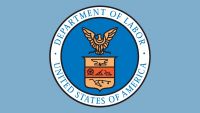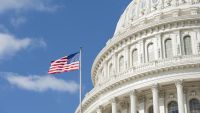Big Win for Labor May Never See the Light of Day
Organized labor turned out in big numbers on Nov. 7 and helped to propel Democrats back into power. Approximately 11.9 million union members came out to vote in the mid-term elections and more than three-quarters of them voted Democratic. It was no secret that the plight of the middle class was high on the domestic agenda during the mid-term campaigns, and it was clearly evident that Democrats would be true to campaign promises when they passed a bill last month that benefits organized labor in a big way.
On March 1, 2007, the House passed The Employee Free Choice Act of 2007. This bill, which would allow union organizers to bypass secret-ballot elections if they can gather a majority of eligible employees' signatures on a petition in support of union formation, passed in the House with an overwhelming majority vote of 241-185, with 13 Republicans voting for and only two Democrats voting against the bill. This legislation would require an employer to recognize a union as its employees' collective bargaining representative absent an election conducted by the National Labor Relations Board.
Democrats maintain that this legislation is in response to concerns of failing wages and rising health insurance costs. They hail the bill as a way to improve conditions for the working class by facilitating the creation and negotiation of labor unions. Quick passage of the bill is a demonstration of a vastly different political climate in Washington and organized labor's newfound clout in a Democratic-controlled Congress. However, the bill faces a near certain death in the Senate, where Democrats lack the 60 votes needed to overcome a filibuster by Republicans, which would keep the Senate from taking a vote on the bill. Even if the bill should see the light of day in the Senate, President Bush has made the "power of the pen" very clear with his threat to veto the legislation should it arrive on his desk for signature. Also, even with the support of Republicans in the House, the vote count fell well short of the two-thirds majority that would be needed to override a veto in that chamber.
Rep. George Miller (D-CA), chairman of the House Education and Labor Committee, and sponsor of the legislation, said, "The Employee Free Choice Act has a very simple purpose: To allow more Americans to choose, if they want to, to join their fellow employees in seeking better wages, better benefits and better working conditions.
"We are painfully aware, and even President Bush has publicly acknowledged, that the middle class in America is under the gun economically, fighting to pay the bills, fighting for health care, struggling to pay for college, and put aside a nest egg for their retirement," Miller continued. "They are working harder and harder just to keep up."
In addition to the fact that employers will no longer be able to insist on a secret-ballot election once organizers gather more than a majority of signatures in favor of the union, the bill would also establish steps to push employers and unions toward agreement on an initial contract and create penalties for intimidation of employees.
Needless to say, this legislation is vehemently opposed by business interests who criticize the provision that would remove the ability of employers to demand a secret-ballot election before a union could be certified. Under current law, an employer may insist on a vote by secret ballot after a majority of employees have signed cards supporting representation by a union. The vote must be taken before a union can be certified as a bargaining agent.
Presently under the current law, once an election date is set, both sides can campaign. However, union representatives maintain this gives employers ample opportunity to intimidate workers into voting against organizing. Supporters of the measure contend that this bill would remove the threat of such intimidation, therefore protecting workers rights.
A statement of administration policy released on Feb. 28 stated: "It is a fundamental tenet of democracy that individuals are able to vote their conscience, privately, free from the threat of reprisal. Substituting a Œcard check' mechanism for private ballots would turn back the clock 60 years and return us to a failed system."
Other provisions in the bill change the certification process by establishing procedures designed to speed the process of employers and unions reaching a deal on their first contract. The bill would give the employer and the union the option of moving toward mediation on the first contract if they could not agree within 90 days. If mediation did not produce a result after 30 days, the parties would automatically go to arbitration, with the results binding for two years. Under current law, the sides have a duty to bargain in good faith, but are under no obligation to reach an agreement.
Despite business and labor groups having lobbied furiously on the issue, the victory in the House may well be the only win this piece of legislation will see.
| Year | Number of elections held | Percent won by union | Total number of union workers | Union share of total workforce |
| 2000 | 2,855 | 51.0% | 16,258,000 | 13.5% |
| 2001 | 2,418 | 51.9% | 16,275,000 | 13.5% |
| 2002 | 2,501 | 54.9% | 16,146,000 | 13.3% |
| 2003 | 2,156 | 56.4% | 15,776,000 | 12.9% |
| 2004 | 2,159 | 56.1% | 15,472,000 | 12.5% |
| SOURCES: The AFL-CIO and the Labor Research Association | ||||
About the Author
Jessica Johnson Bennett was the Director of Government Affairs for MCAA. She has an extensive background in public affairs and government relations. Her expertise in strategic planning, PAC management and operations help on key policy issues.


















